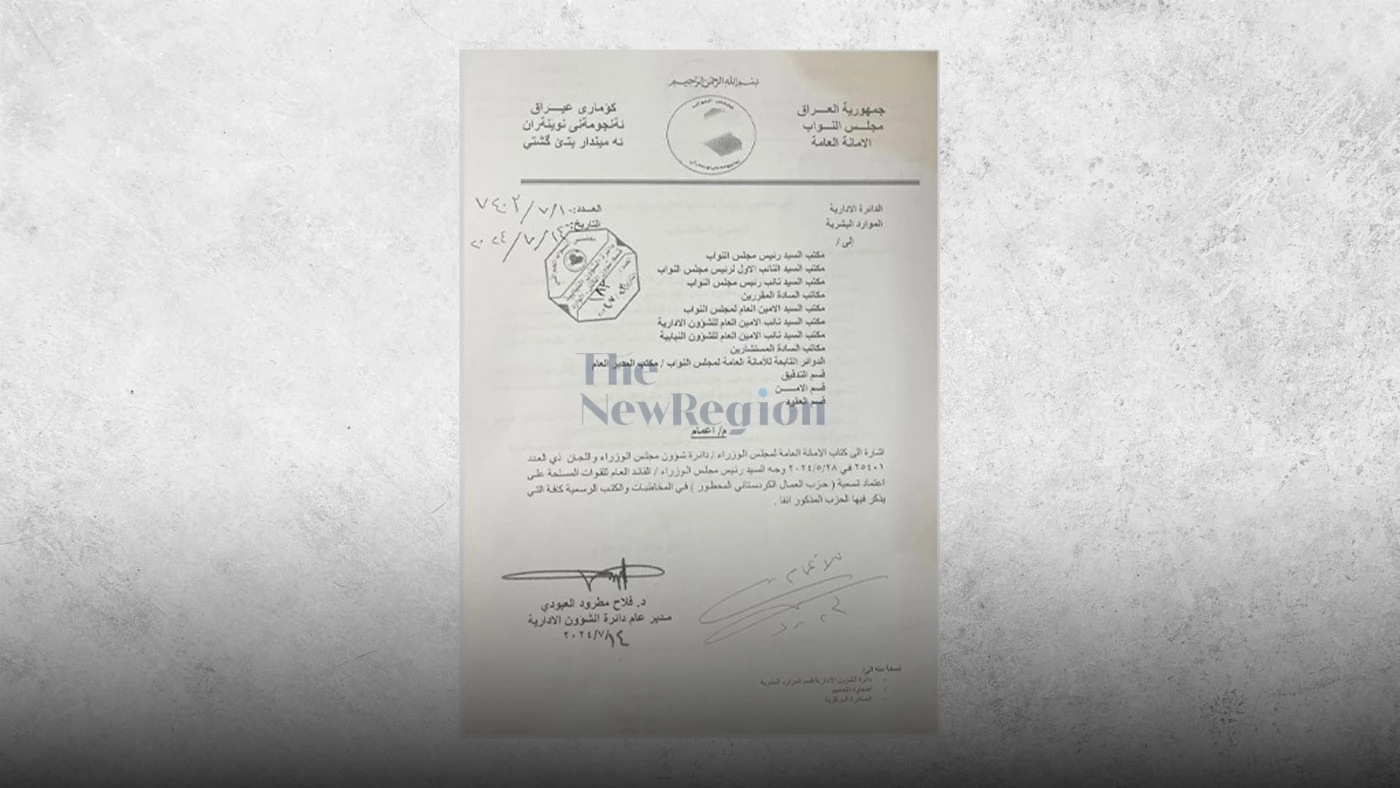The Iraqi Prime Minister has directed all state institutions to officially rebrand the Kurdistan Workers’ Party (PKK) as the “banned PKK” in all affairs of state, months after a high-level meeting between Ankara and Baghdad led the Iraqi side to officially criminalize the group.
The directive obtained by The New Region and sent to the different parliamentary offices by the parliament’s administrative branch, dictates that the phrase “banned PKK” be added to all conversations and written documents.
Turkey has for years launched several rounds of an operation dubbed Claw Operation against positions of the PKK in the Kurdistan Region. The latest in the series of operations was launched in April 2022, dubbed Operation Claw Lock, which aims to end the group’s presence in the region.
Turkish officials have previously claimed that they aim to end the current operation this summer, with Erdogan in March claiming that they are close to permanently “resolving” the PKK presence on the Turkey-Iraq border.
After a high-level delegation from the Turkish government visited Baghdad in March, Baghdad announced that they have officially categorized the PKK as a threat to its security and classified it as a banned group in the country.
The PKK is an armed group that has fought for increased Kurdish rights in Turkey for decades, the group, designated as a terrorist organization by Ankara, uses mountainous areas of the Kurdistan Region as shelter and often engages in direct armed conflict with Turkey.
The Border Forces Command of Iraq's Ministry of Interior in June announced the implementation of measures to reduce the presence of the PKK elements along the Iraqi-Iranian border, alongside a broader plan to secure the Iraqi-Turkish border.
Lieutenant General Mohammed Sakar Al-Saidi, Commander of the Border Forces, told Iraqi state media that Iraq's border fortification measures vary by country, depending on several factors, including security, proximity of border villages, engineering and electronic measures, economic disparities, and regional topography.



 Facebook
Facebook
 LinkedIn
LinkedIn
 Telegram
Telegram
 X
X


